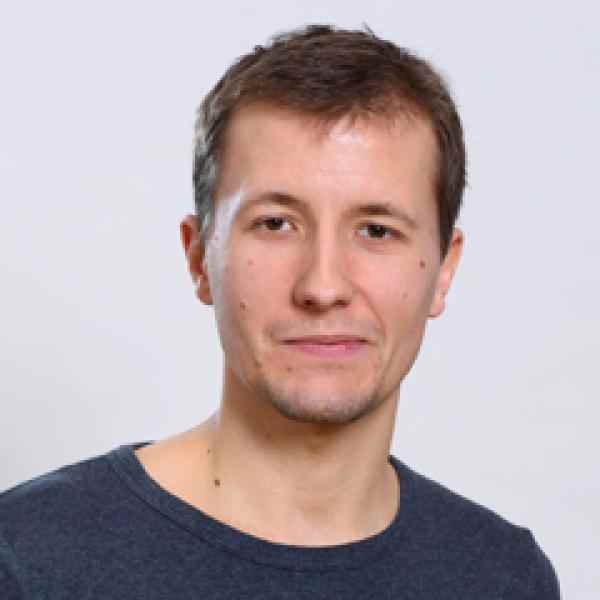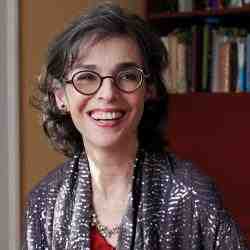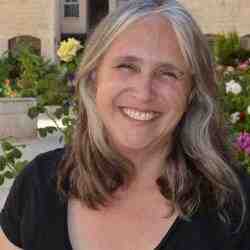Einführung
Simon Köhl decreases educational inequality by empowering people to shape education from the bottom. Through the first co-curated interactive learning platform for students and teachers, Serlo Education improves education by offering a tool for individualized learning and leverages its potential to flip classrooms through smart offline activities.
Die neue Idee
Classrooms in Germany are becoming increasingly diverse in terms of socio-economic standing, cultural backgrounds and special needs requirements. Experts agree that addressing this diverse cast of students is one of the main challenges for the German education system. Simon Köhl realized that a smart approach to individualized learning was needed to ensure equal opportunity for all. In 2009, he founded Serlo Education to launch the first co-curated interactive learning platform for teachers and students based on the idea of Open Educational Resources (OER). Simon then integrates the essence of OER, namely the collaboration on openly licensed digital media, directly into the classroom.
To achieve the seamless integration of the serlo.org platform in the classroom and beyond, Simon’s association—Serlo Education—pursues offline activities in smart alliances. Serlo Lab Schools and the Serlo Academy are two formats that reconfigure the student-teacher relationship towards an open classroom format. Teachers take on a role as facilitators of a more democratic classroom, where individual potential can flourish, and the diversity of experiences and backgrounds enriches discussion and problem-solving. Ultimately, this leads to a more individualized and empowering learning experience, thereby reshaping the education system from the bottom up.
Serlo Education’s uniqueness and scalability lies in its community-based approach, being the first “Wikipedia for education“ of its kind. It leverages the potential of more than 800,000 teachers across Germany, who can share knowledge and best practices through the platform, and directly ties in students’ feedback as well, thus giving them a voice in enhancing their own learning experience. With close to 800,000 individual users per month, serlo.org has quickly become the largest provider of OER in Germany to date and has already started to translate the platform into other languages.
Das Problem
The 2015 Programme for International Student Assessment (PISA) study found that although Germany scores high on overall performance, the country falls short of the OECD average in terms of the achievement gap between students based on socioeconomic background. At the secondary schooling level, 453,000 students are both poor and struggle academically. The official strategy up to date has been to “divide and conquer”: Germany has the most differentiated school system among the OECD countries, which goal is to ideally create homogenous learning groups. The resulting stratification of students based on their perceived learning abilities contributes to a culture of frustration, anxiety and low self-esteem, further penalizing those who didn’t have equitable chances to begin with.
Experts in the field see great potential in individualized learning, understood as an approach that would enable each student to fully realize his or her potential by focusing on individual strengths and needs, and offering tailored support where needed. German schools are still too rigidly structured to integrate this approach without external impulses and resources. Teachers currently act as “knowledge keepers,” herding their classes through a tightly knit curriculum, with little time to spare for those who need additional support. Their vocational training does not equip them with teaching methods that would help facilitate a personalized learning experience: a space, where students learn the material self-determinedly at home and use the time in class for practical application and collaboration projects.
To fill the gap in the current top-down system, a highly lucrative tutoring industry exists. In total, German parents spend €879 million a year on afternoon tutoring classes and additional learning resources. Next to these monetized resources, students from low-income families have few alternatives. The 2011 governmental program (“Bildungspaket”), targeting disadvantaged students from low-income families, has been an expensive experiment. It has cost the municipal governments €570 million per year, with its agonizing bureaucracy taking up a share of €182 million. The complicated application process also deters families from accessing the benefits: only 7 percent of eligible families submitted applications and half of these were later rejected.
In the digital sphere, both learning forums and tutoring sites have offered free access to educational resources. However, both struggle with quality maintenance: in forums, curation is lacking; and tutoring sites are heavily reliant on advertising revenue, often modifying content to attract more user traffic. There are several teacher platforms that have engaged with the idea of OER. However, they are in principle not accessible to students and have struggled with sustaining a committed user base of teachers, resulting in issues of quality, usability or applicability across topics and grades. There are some platforms that do offer high quality educational content for free. These are excellent resources, though the models are often resource-intensive and do not operate on open licenses. Therefore, they address the material dimension of the problem—access to free high-quality educational resources, but not the systemic—lack of flexibility and student disempowerment in education.
Die Strategie
With the serlo.org platform, Simon Köhl has developed a powerful new resource to enable individualized learning in the classroom and at home by harnessing the power of OER and making it accessible to students. The foundation of his strategy is the mobilization of volunteers for free education. Similar to Wikipedia, the volunteer community of content contributors is serlo.org's crown jewel: the more people add and use the material, the better the platform will become. Around 4,500 people have so far shown interest in becoming part of the community by registering on the platform, which enables them to modify and comment on the content. Before content goes live, the editorial staff makes sure all content meets quality standards, ties in with federal curricula and links up to other materials already on the platform.
Curation by the community not only puts education in the hands of students and teachers, it also allows serlo.org to offer high quality learning resources free of charge. Depending on what they need, students can find interlinked Wiki-style explanation pages on basic knowledge, interactive exercises, and detailed solutions for exercises. Currently, the platform offers extensive materials in mathematics, the German language and applied sustainability studies, with development underway for biology, physics, chemistry, IT and politics. Since 2011, serlo.org was able to increase its user base from 500 to almost 800,000 monthly unique users.
Simon’s ultimate goal is to bring the principles behind the digital platform into the classroom. Around 33% of users access the platform during school hours, indicating that it is already being used as a tool for teaching and learning in class. But Simon has developed several other strategies to drive impact. Simon partners with schools and organizations in the field of education, for example, Teach First, to integrate the platform and the values it promotes into the work of teachers and other educators. The organization Chancenwerk, by Ashoka Fellow Murat Vural, for example, is prototyping the use of serlo.org in its tutoring program. Such partnerships also help him further grow the user base and build a trusted brand.
Second, Simon has developed the Serlo Lab School, an afternoon class format offered directly by partnering schools, which allows students to use the platform with the help of a trained facilitator. Not only are students thereby empowered to learn independently using serlo.org as a tool, but the Lab School also exposes teachers in training to serlo.org by working with them as facilitators. The Lab Schools help Serlo Education to pilot classroom integration strategies and get the tool into the hands of teachers.
Finally, the Serlo Academy internship program is directed at students of teaching and pedagogy. During the internship, these future teachers contribute to and edit the platform content, receive trainings on OER and open licensing, and explore innovative teaching methods that emphasize collaboration and feedback. The Serlo Academy format encourages future teachers to rethink their role, moving from knowledge bearers to learning facilitators. It is also Serlo Education’s most important recruiting tool to expand its volunteer community.
When Serlo Education was founded in 2009, it was built entirely by volunteering pupils. After three years of developing the platform prototype, Simon was able to secure first fundraising successes which helped professionalize the organization. At the current stage, funding stems largely from the philanthropic sector and private donations. Moving forward, the idea is to build upon small donations of serlo.org’s growing community, akin to the Wikipedia model, as well as through a sponsoring membership model for those wishing to support Serlo Education as the registered non-profit organization behind the platform. Because serlo.org runs entirely on self-developed software, Simon also co-founded the software company ORY GmbH that specializes in open source technology and cybersecurity. ORY develops components for the platform in close cooperation with Serlo Education and then also offers these and other software services to commercial clients,. By generating revenue, ORY carries the costs of serlo.org’s software development, offering pro bono development services to the organization.
Beyond being a high quality free learning resource that explicitly addresses the needs of disadvantaged students, Simon’s overarching vision is to achieve equal opportunity in education through the democratization of the education system. This entails a learning culture that encourages students to participate and become active members of their classes and communities. Serlo Education’s community-based approach (online wiki and online/offline volunteer community) offers a blueprint for how this vision can spread on a global scale. To this end, Serlo Education plans to make the platform adaptable to different language contexts. Translations of the software into English, Spanish, Japanese, Turkish and Polish are already underway. Simon also wants to see serlo.org used to facilitate student cooperation across borders. For example, he imagines that serlo.org can offer a valuable communications tool for classes in Germany and Poland to study the Second World War together and collaborate on cross-border multimedia projects.
Die Person
Simon grew up in a family that valued political discussion as a vital part of education. From a very young age onwards, he became aware of different forms of injustice throughout the world that he saw on the news. He quickly understood that equal opportunity in life was heavily intertwined with equal access to quality education. His own path through the education system, however, was not always easy. In 3rd grade, he was diagnosed with dyslexia and often struggled in school. In 10th grade, Simon missed a lot of school due to an extended stay in the hospital and failed to pass twice. He only managed to finish grammar school because his parents were capable to pay a lot of private tutoring. A brief phase in which Simon was a victim of bullying by classmates, further impeded his chances to reintegrate and opened his eyes to the many hurdles that disadvantaged students face on a daily basis.
After changing to a different school type (Fachoberschule) that emphasized practical learning over the more science-based secondary school (Gymnasium), things gradually got better. Simon enjoyed the possibility of interning at a kindergarten and a school for the disabled because it gave him exposure to something tangible and needed within society, rather than learning about theoretical models in a space that was fairly isolated from real world problems. He also relished the fact that teachers and students treated each other with respect and compassion. During these final years in school, Simon began thinking about a way to bring this kind of experience to all students, regardless of their learning level or social background.
At the age of 18, he decided to join the Social Democratic Party (SPD) and became an active member in its youth wing. Even though party politics turned out to be largely frustrating, Simon values the experience because it showed him that he enjoyed working towards social justice issues and wanted to build a career based on making a difference. Things fell into place in 2009, when Simon got the chance to visit Nepal in his final year of school. During a visit to the remote Serlo Buddhist Monastery, he noticed that the books for the young monks were outdated and learning materials were scarce. They did, however, have access to computers and the internet, but did not use them for educational purposes because online resources were hard to find. After coming back from the trip, Simon began working on the platform every day and quickly assembled a small team of volunteers. The platform’s name, of course, is a tribute to the monastery as a source of inspiration and activation for him, and is emblematic of Simon’s greater vision of making education accessible for all, regardless of where and under what circumstances they grow up.



